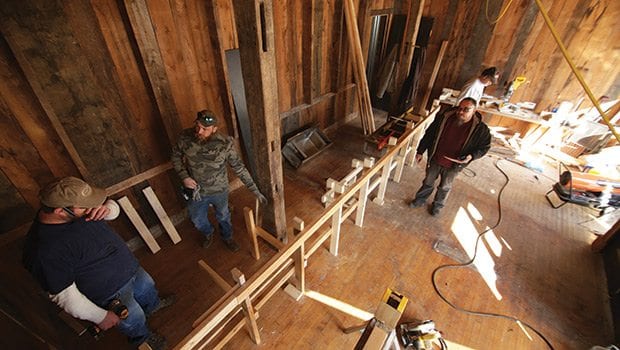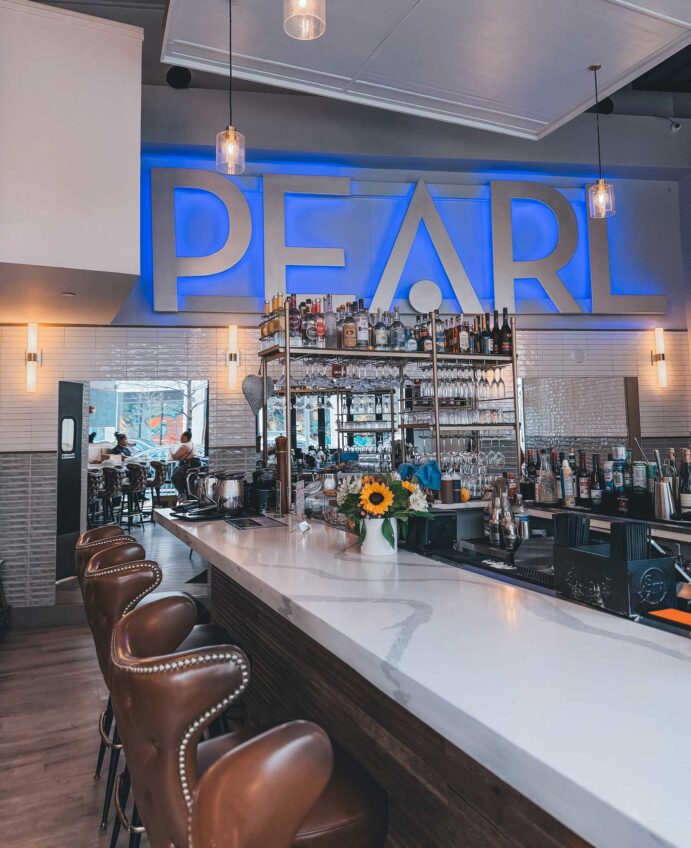Roxbury man starts craft distillery in NH
New Hampshire’s state liquor distribution system offers filmmaker new opportunity

What exactly does a veteran film director, producer and Emerson College film professor know about distilling alcohol? That is a good question, but Roxbury resident Robert Patton-Spruill has enough passion — and the boost of a federal distillery license — to believe that his recently launched New England Sweetwater Farm & Distillery can be a success in the business of booze.
The Winchester, N.H.-based distillery has the added bonus of being in a state that runs its own liquor sales and distribution. That means a startup business like Patton-Spruill’s has to ship its product to just one customer in order to get on the shelves. In addition, New Hampshire regulations stipulate the state must carry the product of any licensed liquor manufacturer within its borders.
“You have one customer to sell to, one distribution chain,” Patton-Spruill said. “From a startup’s perspective, that is a beautiful thing.”

Author: Photo Courtesy of Robert Patton-Spruill(Front) Robert Patton-Spruill, founder of New England Sweetwater Farm & Distillery, with staff members (l-r) Chris Longe, Travis Hill, Mark Kellom.
Booming business
And New Hampshire’s liquor business is booming. The state backs the booze business because it is a major revenue generator in a tax-free state. With large state liquor stores on major highways coming into N.H., tax-free liquor products draw customers from throughout New England. According to the New Hampshire Liquor Commission, sales topped $600 million in 2013 (the last reported year), and 2014’s numbers are expected to be even higher when they are released officially later this spring.
Patton-Spruill joins a growing sector of what is known as micro- or craft distillers. While liquor manufacturing in the U.S. has traditionally been dominated by large companies or imports from other countries such as Ireland, craft distillers have been on the rise. According to the American Distilling Institute, small distillers have grown by about 30 percent per year, from around 50 distillers in 2005 to more than 600 in recent years. Changing regulations have made it easier for craft distillers to go into business, and more and more have chosen to do so.
Patton-Spruill notes that his federal distillery permit is number 1,400, suggesting the number of those planning to enter the business is still relatively low.
Many, Patton-Spruill included, hope the craft distillery business can mirror the success of the craft beer brewing industry, which rose from infancy over the past several decades to a sector with some 3,000 craft brewers and over $14 billion in sales.
The starting place for New England Sweetwater Farm & Distillery will be New Hampshire, but with his ties to Boston, Patton-Spruill hope to expand someday to his home state.
His path to New Hampshire began in 1998 when Patton-Spruill bought a 50-acre farm for his parents to live on in Winchester, in New Hampshire’s Monadnock region, a quintessential New England countryside with farms, rolling green hills, stone wall-lined roads and covered bridges, as well as many historic small villages. In 2012, when he inherited the farm, he immediately began to think of ways to turn it into a working farm and to renovate an existing barn into a distillery that could process the grapes, fruits, grains and potatoes needed to make liquor. The ultimate goal is self-sufficiency, with the farm producing most of the products needed for the distillery.
Early setback
It seemed like a great plan — the town of Winchester was on board with approval for the new business — but it was derailed in February, 2014 when the distillery was rejected for a federal license because the barn site was too close to the house. Faced with the decision to move the barn to an approved distance at a substantial cost or look for other options, Patton-Spruill turned to the town center and found a 140-year-old building on the banks of a historic river that runs through the area. His impetus was the hope that the cost of purchasing the building and renovating it as a distillery would be less than building a new barn, but it also had the added benefit of a better location on Main Street in the middle of town. The iconic location seemed a perfect fit for the spirit of the Sweetwater Distillery, so in April, Patton-Spruill bought the building.
This time the federal license was quickly approved.
Currently, Patton-Spruill and his New England Sweetwater Farm & Distillery staff are hard at work renovating the distillery’s new home, with plans to open for business this fall.
Most of the major distiller equipment — several refining stills — is set to go into the building next month. The plan is to practice the alcohol recipes over the spring and summer to make sure the products are coming out as designed.
New England Sweetwater Farm & Distillery is planning three initial liquor products: Ashuelot Vodka, Clark & Chesterfield Whiskey and Monadnock Moonshine.
While the main initial business will be through the N.H. liquor stores, the license allows the distillery to sell products through a tasting room at the Winchester site as well.
Brand awareness will be crucial to the ultimate success of the distillery products, Patton-Spruill says. And for that, he can draw on his background in media.
A graduate of Boston University film school, he has been involved in film and TV since the mid-1990s. He sold his first film, Squeeze, to Miramax in 1996 for $1 million. He has since directed other films, including Body Count, Turntable, Public Enemy: Welcome to the Terrordrome, and Do it Again. He started the production company Film Shack in 2001, rebranded that company 617 Digital in 2008, and still runs it today with his wife, Patti Moreno. He has also taught directing classes at Emerson College for eight years and prior to that taught at Massachusetts College of Art and Design.
His wife, well known as “Garden Girl” from the HGTV channel’s Garden Girl TV, will oversee the farm aspect of New England Sweetwater Farm & Distillery.
Patton-Spruill plans to continue to split his living and working time between Roxbury and New Hampshire. He has high hopes for his distillery, especially getting in on the ground floor of growing industry.
“The whole thing is exciting,” he said. “It is such a brand new thing. Who knows what can happen?”


![Banner [Virtual] Art Gallery](https://baystatebanner.com/wp-content/uploads/2024/04/Cagen-Luse_Men-at-store-e1713991226112-150x150.jpg)



